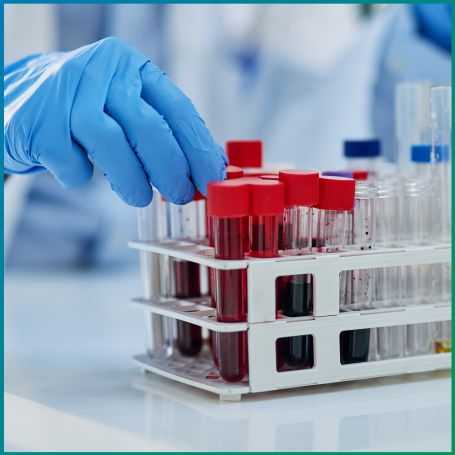
The Toxoplasma IgM Test detects IgM antibodies against Toxoplasma gondii, indicating a recent or active infection, which is crucial for early diagnosis, especially during pregnancy.


The Toxoplasma IgM test is used to detect the presence of immunoglobulin M (IgM) antibodies against Toxoplasma gondii, indicating a recent or active infection with the parasite.
1. Diagnosis of Active Infection: A positive IgM result suggests a recent infection, which is critical for timely diagnosis and treatment, particularly in pregnant women or immunocompromised individuals.
2. Monitoring Pregnant Women: This test is especially important for pregnant women, as a primary infection can lead to serious complications for the fetus, including neurological and developmental issues.
3. Guiding Treatment Decisions: A positive IgM result can prompt further testing and monitoring to manage potential risks and complications associated with the infection.
1. Blood Sample Collection: The test involves drawing a blood sample, typically from a vein in the arm, using standard venipuncture techniques.
2. No Special Preparation: Patients usually do not need any special preparation before the test, but they should inform their healthcare provider of any medications or health conditions.
3. Laboratory Analysis: The blood sample is sent to a laboratory, where it is tested for the presence of IgM antibodies against Toxoplasma gondii. Results are usually available within a few days.
Advanced Technology: Diagnopein utilizes state-of-the-art laboratory equipment to ensure accurate and reliable test results.
Experienced Staff: Our team consists of skilled healthcare professionals dedicated to providing excellent patient care and maintaining confidentiality.
Quick Turnaround Times: We prioritize timely reporting of test results, allowing for prompt diagnosis and management.
Comprehensive Care: Diagnopein offers a wide range of diagnostic services, making it easier for patients to access all necessary evaluations in one location.
A positive result indicates a recent or active infection with Toxoplasma gondii, requiring further evaluation and management.
The test is low-risk, with potential side effects limited to minor discomfort or bruising at the blood draw site.
The test is generally reliable, but false-positive or false-negative results can occur. Confirmatory testing may be needed for a definitive diagnosis.
Testing frequency depends on individual risk factors, such as pregnancy or immunocompromised status. Pregnant women should be screened early in pregnancy, while others may be tested as advised by their healthcare provider.